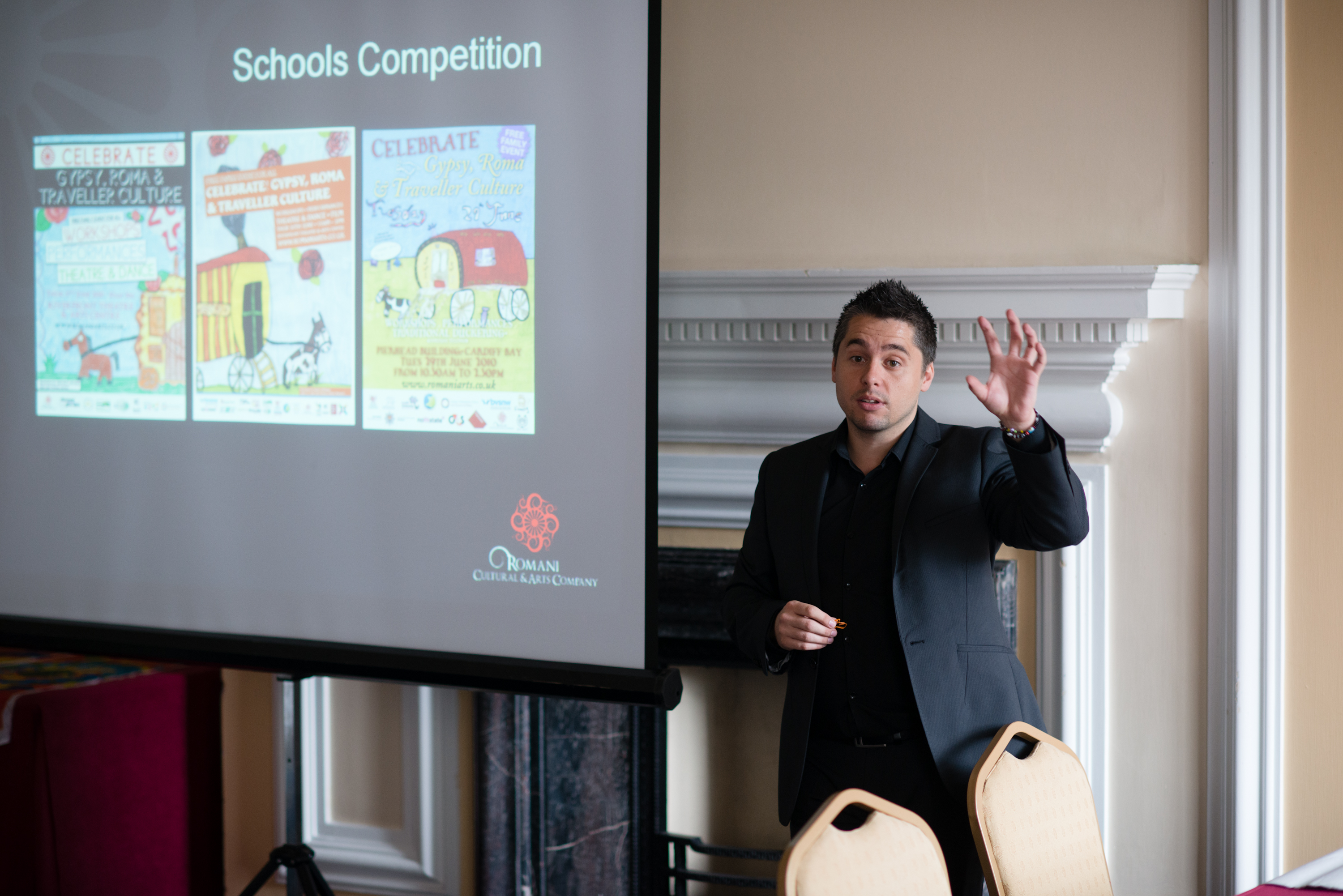Today nearly 2785 Gypsies, Roma and Travellers live in Wales. We spoke to Isaac Blake, Director of the Romani Cultural and Arts Company, ahead of a Symposium that will bring together politicians, academics, and public servants with representatives of these communities.
Wales has moved to improve the lives of Gypsies and Travellers. What can the rest of the UK learn from the Welsh strategy?
In 2011 the Welsh government produced Travelling to a Better Future, a strategy to ensure that Gypsies and Travellers living in Wales are treated fairly and have equal opportunities in areas such as education, health, and housing.
This is the United Kingdom’s first such National plan for Gypsy and Traveller people and we have seen clear progress since it launched. For example, in 2013 revised health standards allowed more vulnerable people—including many Gypsies and Travellers—to access primary health and substance misuse services. Local authorities were given funding to refurbish existing sites for Gypsies and Travellers and pursue new sites, which both improved housing conditions as well as ensured that cultural traditions of Gypsies and Travellers are respected.
Are there any problems?
The biggest drawback of the current strategy is that it does not relate to the Roma population. In recent years there has been an increase in the Roma population coming to the UK from Central and Eastern Europe but migration policy does not fall under the jurisdiction of the Welsh government.
This limits the scope of any action the Welsh government can take. Roma populations who have recently moved to the UK can face the same discriminatory treatment in public services as existing communities. The Welsh government needs to formally acknowledge Roma in their policies and better gauge what the real issues are for people on the ground. The number of Roma moving to the UK does not constitute a threat to British society. Not responding to these demographic changes with comprehensive policies is the real threat.
What do you want to achieve through this symposium?
We work daily with Gypsies, Roma and Travellers and can attest to the systematic discrimination they face. From securing health care access to finding jobs, Wales’ Gypsies, Roma and Travellers confront prejudice daily. A lot of this is caused by a lack of communication between the communities and politicians or public service providers. Policies, strategies and resources do not respond effectively to the needs of the communities when communities are absent from the debate. Our access to these groups puts us in a unique position to try to bridge the gap.
The symposium is an opportunity for Gypsies, Roma and Travellers from across Wales to express their views—in their own words—in front of policy makers and public servants such as local authority managers, teachers, health professionals and police officers. The two sides have not had the chance to discuss instances of discriminatory treatment and how our schools, hospitals and housing services can better serve them.
This debate will form the basis for a report to the government that will better inform their overall policy.
What are the biggest challenges that Roma, Gypsy and Traveller communities in Wales face and what are you doing to address them?
We are trying to work directly with the communities to address problems of equal access to public services, such as education. In Wales today there are more Gypsy, Roma and Traveller children in schools than ever before. However, school attendance and attainment are low compared to other groups. A large number of young Gypsy, Roma and Travellers fail to make the transition from primary to secondary school.
We engage with children from a young age to increase their interest and motivation in school through ‘community-led’ projects on caravan sites. Children and their families participate at artistic workshops which aim to build confidence around their culture and identity. Many children involved show improved performance, attendance and behavior at school and start to show an interest in extracurricular activities. The success of this approach is such that other organizations now seek to run the workshops elsewhere in the UK.
The Welsh Government has also recognized the importance of building understanding around the culture and history of all minority groups living in Wales. It will soon launch a new on-line curriculum resource called ‘Travelling Together’ which will provide Gypsy, Roma and Traveller learners with a culturally relevant curriculum, whilst dispelling myths and prejudices about the travelling community when accessed by other learners. We want to encourage such comprehensive responses by the government and civil society to all public services.
The Open Society Foundations supports the organization of the Gypsy, Roma and Traveller Symposium in Wales on October 20.
Press coverage notably from (Open society Foundations)
The Romani Cultural and Arts Company is not responsible for the content of external Internet sites.

